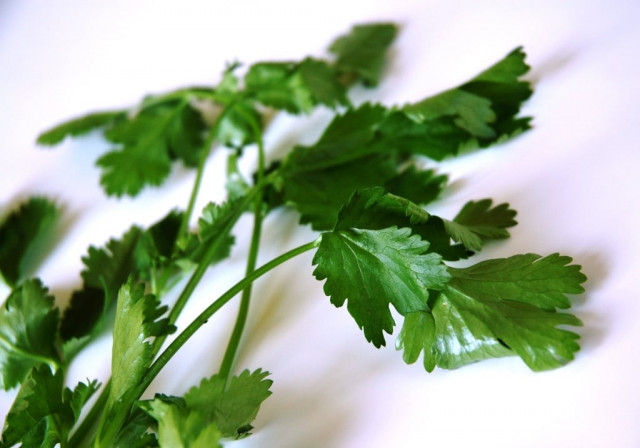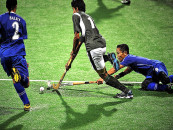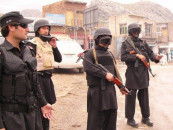‘Harra Dhanya’: Book portrays tribulations of expats searching coriander in London
Rashida Alvi explains how Pakistanis try to make up for the coriander shortage in England.

Rashida Alvi explains how Pakistanis try to make up for the coriander shortage in England. PHOTO: FILE
It is only in a foreign, distant land that something as regular and underrated as coriander, the herb popular for the crisp fragrance and citrusy taste it adds to Pakistani cuisine, might become a much-wanted commodity.
So when author Rashida Alvi, living in London, offered her son a plain bowl of daal (lentils), he simply refused it, saying it looked “naked” without the coriander garnish.
The passage is from a chapter of Alvi’s new non-fiction book titled “Harra Dhanya” (coriander), which was launched at a ceremony at the South Asia Free Media Association (SAFMA) office the other day.
The book, Alvi’s second, revolves around the lives of overseas Pakistanis and is the product of experiences derived from her own extended stay in London, or more appropriately, as she writes in the book’s introduction, it is “the foreign experience and analysis of a woman from Asia”.
The personal, comic voice and an obvious sense of honesty in the narrative make the short chapters of the book easy to read and rather endearing.
The chapter she penned on coriander appears to have become central to the book, and eventually became the book’s title, because the futile search for coriander in British grocery stores neatly encapsulates the trial and tribulations of the Pakistani expatriate community in England.

The herb is only available in England’s markets for a short duration during the year, Alvi writes, before she goes on to explain humorously how the Pakistani community tries to make up for the coriander shortage.
Part of the book describes the way she and others she knew search for items, especially food products, in England, which were a part of their lives back in Pakistan and which now remind them of home.
Alvi was born in the Patiala family, which moved to Pakistan at the time of Partition when she was just seven. She studied at Rawalpindi’s famous Gordon College, then taught for a while in Islamabad, before getting leaving for England with her husband.
Former executive director Lok Virsa Uxi Mufti termed the book “interesting” and “unique” and said it brings to fore the inherent differences between East and West.
“It is a strange topsy-turvy world,” Mufti said. “The West is scientific, logical and not bogged down by custom while the East is more religious, emotional and ritualistic.”
Writer and poet Kishwar Naheed, who chaired the book launch, said she would not call Alvi’s book a literary book rather she would call it the “life memoirs” of her and other Pakistanis who moved to England to begin their lives there.
She recollected aloud her own observations about Pakistanis abroad; of how they pine for curry and naan so much that they sometimes scoop soup with bread as if it were curry.
But she said there is another aspect to Pakistanis living in England which has not been touched upon in detail in Urdu literature- the issue of forced marriages.
Naheed said educated British-born Pakistani girls are often forced in to marriages by their parents and families and have to undergo extreme abuse and trauma, but Pakistani writers, even women writers, have not highlighted this issue in their writings.
Alvi’s book also explores a new direction in writing, Naheed said. She praised the history of pubs and the London underground subway system that Alvi has provided in her book.
Published in The Express Tribune, November 23rd, 2013.



















COMMENTS
Comments are moderated and generally will be posted if they are on-topic and not abusive.
For more information, please see our Comments FAQ